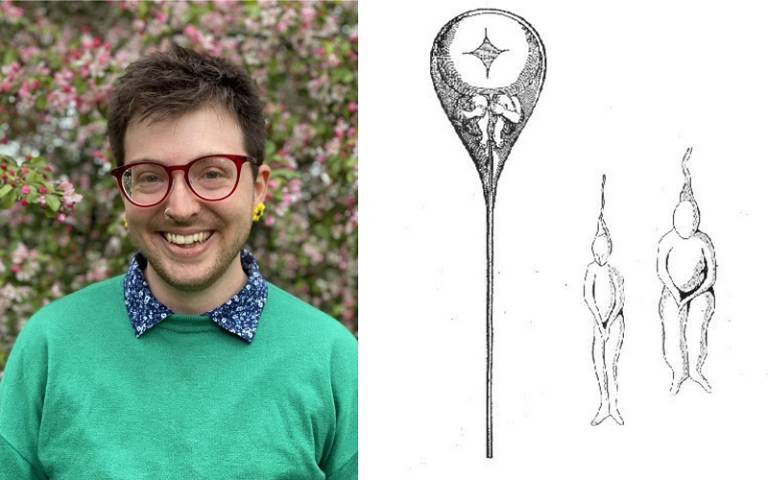Not the first pregnant man: Uncovering histories of trans family
27 February 2024, 5:00 pm–6:30 pm

qUCL are pleased to welcome Kit Heyam, who will unpick the factors that construct trans family as uniquely unthinkable in contemporary Western thought, discussing the association between trans identity and individualism, and the perception that trans people are incompatible with normative biology.
This event is free.
Event Information
Open to
- All | UCL staff | UCL students
Availability
- Yes
Cost
- Free
Organiser
-
qUCL
Location
-
IAS Common GroundG11, ground floor, South WingUCL, Gower St, LondonWC1E 6BTUnited Kingdom
The politicised erasure of trans history is a central feature of our contemporary anti-trans climate - but nowhere more so than in the realm of the family. Every year sees a new 'first pregnant man'; every form of trans family is too often approached with awe and stupefaction rather than care and recognition. Claiming that something is unprecedented is a cast-iron excuse for dealing with it badly, or not at all: how can medical staff and journalists really be asked to treat trans people with respect when this is all just so new? And feeling as if they're the first to do something can prevent trans families from building networks of solidarity: can the unprecedented family ever truly thrive?
Building on my work in Before We Were Trans: A New History of Gender, which argued that narrow contemporary ideas of what makes someone 'really trans' frequently obstruct our capacity to recognise trans history, I unpick the factors that construct trans family as uniquely unthinkable in contemporary Western thought, discussing the association between trans identity and individualism, and the perception that trans people are incompatible with normative biology. Focusing on ideas of pregnancy - as well as reflecting on my own recent experience - I show that while ‘pregnancy’ and ‘womanhood’ feel synonymous in Western culture today, they haven’t always been so. Tracing debates as far back as ancient Greece, I uncover the way scientists and philosophers have always thought critically and creatively about the relationship between pregnancy and gender – until the twentieth century, when social anxieties about destabilising the gender binary caused scientists to reassert it in the face of mounting evidence that it didn’t really work. The idea of a ‘pregnant man’ might be presented as a logical impossibility today, but that way of thinking is far more recent than we might expect.
This event has been organised by qUCL, part of the UCL Institute of Advanced Studies. Please register to attend: https://qucl-trans-family.eventbrite.co.uk
In registering for and/or participating in our events you are consenting to comply with our code of conduct. We want our speakers and attendees' experience to be positive and productive. Please refer to our Code of Conduct webpage for full details.
We are committed to trying to make sure our events take place in a safe environment, so when you arrive on the evening you will see we have some additional security. They will be a discreet presence and please be assured they have been briefed to be sensitive to LGBTQ issues.
About the Speaker
Kit Heyam (they/he)
Writer, researcher, heritage practitioner and trans awareness trainer.
They are the author of Before We Were Trans: A New History of Gender (Basic Books UK/Seal Press, 2022), a global history of gender nonconformity which was nominated for the 2023 Lambda Literary Award in Transgender Nonfiction; and The Reputation of Edward II, 1305-1697: A Literary Transformation of History (Amsterdam University Press, 2020), the first book to uncover how King Edward II acquired his queer reputation. They are currently working to uncover hidden histories of gender in the Royal Armouries, Leeds, as well as working on a history of the changing relationship between ideas of gender, biology and family.
More about Kit Heyam (they/he) Close
Close

